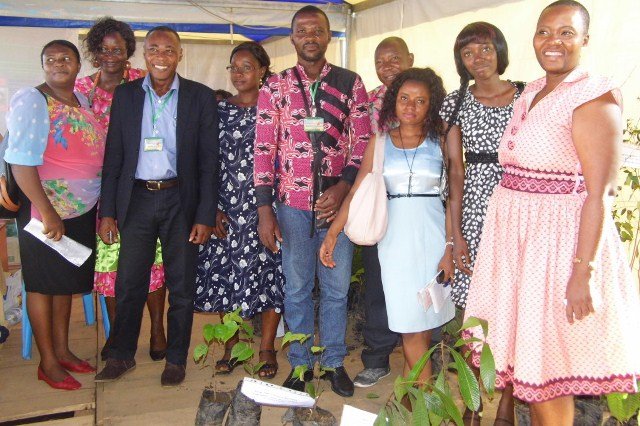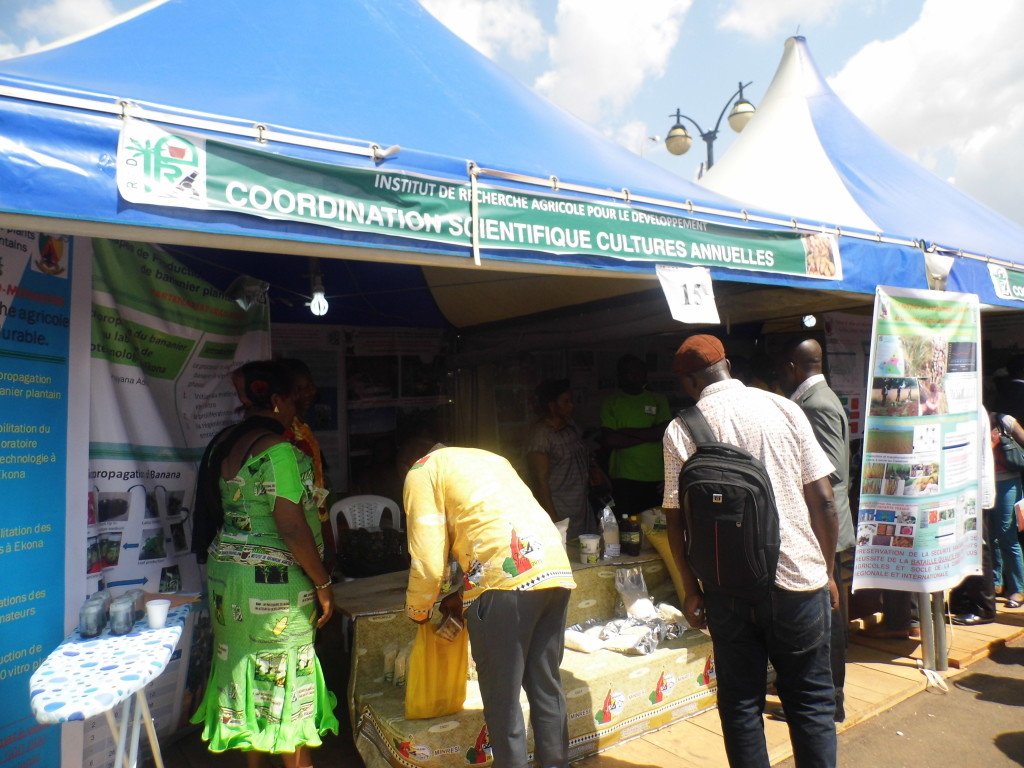 Members of scilife gathered in Yaounde-Cameroon on Thursday November 12, 2015 in a bid to be highlighted on climate change and agriculture, as part of their traditional “café science”.
Members of scilife gathered in Yaounde-Cameroon on Thursday November 12, 2015 in a bid to be highlighted on climate change and agriculture, as part of their traditional “café science”.
In their traditional come together dubbed “café science”, journalists and communication officers of the association scilife had a two hour exchange with two researchers of the Institute for agricultural research and development (IRAD). Welcomed by the President of scilife, Dora Shey of Crtv, the speakers were briefed on the objectives and challenges of the association. Dr Onana Jean Michel of the National herbarium and Massoussi Jacques Anselme of the specialized centre for research on forests both in IRAD were the guest speakers of this “café science” that took place in Yaounde, precisely at the stand of the host institute during the national days of excellence for scientific research and innovation.
Placed under the theme: “climate change and agriculture”, the encounter spearheaded by key members of the association felt within the framework of a series of meetings organized ahead of the 2015 Paris COP 21. The occasion was therefore well chosen and experts well identified to highlight the various members present at this scientific exchange. In an introductory statement, Dr Onana explained how the coordinations of IRAD are structured with their different branches and centers. He said the five coordinations that make up the institute work in agro-ecological zones considering several climatic aspects. Climate change as said is primarily a natural phenomenon characterized by changing the statistical parameters of the climate, it has impacts on biodiversity: living beings and their surroundings. The agricultural calendar as outlined by Dr Onana is based on the availability of water, yet excess water and sun spoil crops. According to Dr Onana investigations are underway in Cameroon on the past and present dynamics of the vegetation and flora. With regards to these researches, results obtained so far show that the diversity of ecosystems present in Cameroon is the result largely of past climate change. Just like his peer Jacques Massoussi, who explained why agriculture is not at the forefront of the next COP21 conference in Paris-France, Dr Onana said constraints are divided into several themes and discussions shall unfold on such issues. They outlined the fact the aspect of our soils have a great role. Many considerations have to be taken into account when it has to do with production of food. The excess nitrate oxide and methane in the soils have a great impact on the agricultural production of crops. When it rains abundantly, the soil gets bad. According to the two experts, we cannot fight against climate change but much emphasis should be put on challenging climate heating. Dr Onana further added that adaptation to climate change through sustainable mitigation or regulation of greenhouse gases are linked to the production of timber and water vapor mainland.
The long heated exchange was marked equally by a series of questions from members of Scilife and later concluded by the Secretary General of the association, Engono Adrienne. She praised the efforts of the team of experts who tied up by their show case at the national days of excellence for scientific research and innovation granted their time.
By Elise Kenimbeni




